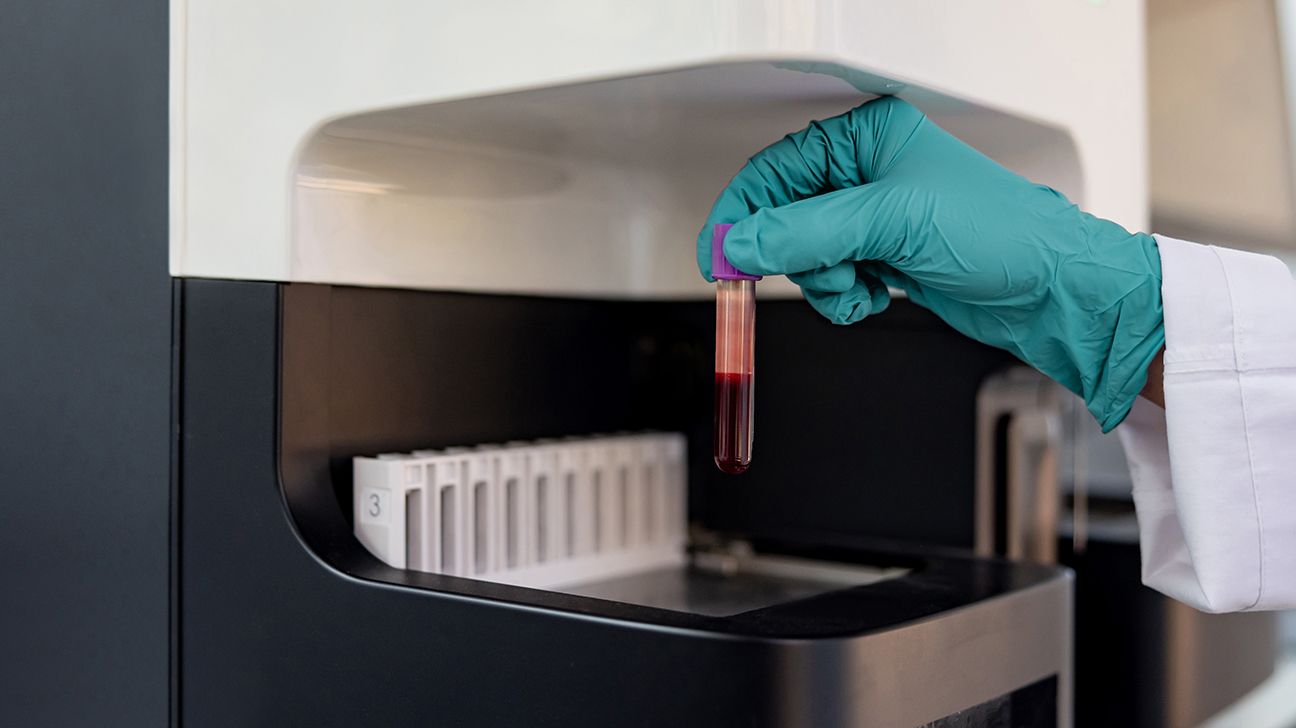
- An experimental drug called lerodalcibep reduced low-density lipoprotein (LDL), or “bad” cholesterol, by 50% or more, a new study showed.
- The one-year clinical trial included people who had failed to lower their LDL cholesterol levels enough using statins.
- Lerodalcibep is not yet approved by the FDA, but two other drugs in this class were approved by the agency in 2015.
An experimental drug reduced low-density lipoprotein (LDL) cholesterol, or “bad” cholesterol, in people who were unable to lower their LDL cholesterol enough using statins.
The researchers say the results support the use of lerodalcibep as a treatment for people with existing cardiovascular disease or who are at high or very high risk of cardiovascular disease.
Most people in the study who received monthly injections of lerodalcibep were able to reduce their LDL cholesterol levels by 50% or more. They also reached the target LDL cholesterol levels recommended by current guidelines.
The results of the clinical trial were published on July 3 in
According to the report, about 10% of American adults have high cholesterol.
However, according to the agency, only half of people who could benefit from cholesterol-lowering treatment are currently taking it, increasing their risk of heart attack, stroke and other major cardiovascular problems.
Drugs available to treat high cholesterol include statins, available since the 1980s, and newer PCSK9 inhibitors.
PCSK9 inhibitors target a liver protein called proprotein convertase subtilisin kexin 9, or PCSK9.
“PCSK9 inhibitors improve your liver’s ability to absorb cholesterol particles from the blood and process them,” said Yu-Ming Ni, MD, a cardiologist and lipidologist at MemorialCare Heart and Vascular Institute at Orange Coast Medical Center in Fountain Valley, Calif. “The result is a significant reduction in cholesterol levels.”
The FDA
“(Approved PCSK9 inhibitors) work very well to lower cholesterol. Sometimes even better than the statins that we typically give to lower cholesterol,” Ni told Healthline.
Additionally, “patients don’t experience too many side effects from PCSK9 inhibitors,” he said. “The only downside is that they can be a little expensive for some patients, depending on their insurance.”
PCSK9 inhibitors may be used in patients who have not been able to lower their cholesterol levels sufficiently with statins. In this case, a PCSK9 inhibitor would be prescribed at the same time as a statin.
However, people who cannot tolerate the side effects of statins can take a PCSK9 inhibitor alone, Ni said.
The new study involved 922 adults who were taking the highest dose of statin they could tolerate but still had not lowered their LDL cholesterol levels to the guideline-recommended target level.
The average age of participants was 65 years and 45% were women. Overall, 88% of people completed the clinical trial.
People were randomized to receive either monthly injections of lerodalcibep or a non-active placebo for 52 weeks.
After one year, 90% of people who received lerodalcibep reduced their LDL cholesterol levels by 50% or more and reached recommended LDL cholesterol goals.
On average, people taking lerodalcibep saw their LDL cholesterol levels decrease by 56% after 52 weeks and by 69.5% after 60 weeks. They also saw decreases in apolipoprotein B, apolipoprotein(a), and triglycerides.
“This is critical because both apolipoprotein B and elevated lipoprotein(a) levels are a significant risk factor for cardiovascular disease,” said Jacqueline Hollywood, MD, a cardiologist at Hackensack University Medical Center, “and we currently have limited treatment options for lipoprotein(a).”
The study results also show that lerodalcibep was well tolerated, with adverse effects similar to placebo.
The main difference was that injection site reactions occurred more frequently in people given lerodalcibep (6.9%) than in those in the placebo group (0.3%). These reactions were mild or moderate in intensity.
Given the benefits of FDA-approved PCSK9 inhibitors, Ni said it’s good to see a new drug that works similarly to them.
“In this trial, we can see that lerodalcibep lowers LDL cholesterol by a very similar amount (to other drugs),” he said.
He noted that previous studies of FDA-approved PCSK9 inhibitors show that these drugs may also reduce the risk of cardiovascular events such as heart attacks and strokes.
He cautions, however, that further longer-term studies would be needed to demonstrate whether lerodalcibep has a similar effect on cardiovascular risk.
“The cholesterol-lowering drugs that were very promising have already surprised us,” Ni said. “So I think it’s really important that we continue this next step (of additional studies).”
Hollywood noted that one limitation of the study is that it included a relatively small number of participants. Even so, the people in the study had “a wide range of cardiovascular disease risk factors,” she told Healthline, “suggesting that the drug could benefit a diverse population.”
The drug could particularly help people with atherosclerosis, a disease in which plaque builds up in the arteries, which can increase the risk of heart attack and stroke.
By reducing cholesterol and inflammation, the drug could prevent new plaques from forming, Hollywood said, although further studies are needed to confirm this potential benefit.
“Overall, the study provides promising evidence of the potential of lerodalcibep in the treatment of cardiovascular disease,” she said.
In a one-year clinical trial, participants were randomly assigned to receive either lerodalcibep, a PCSK9 inhibitor, or a non-active placebo. Study participants were unable to lower their LDL, or bad, cholesterol levels using statins.
The majority of people who received lerodalcibep saw their LDL cholesterol levels reduced by 50% or more and reached guideline-required LDL cholesterol goals.
People who received lerodalcibep also saw reductions in triglycerides and other lipids linked to an increased risk of heart attack and stroke. Lerodalcibep was well tolerated, with side effects similar to placebo. The drug’s main side effects were those that occurred at the injection site.